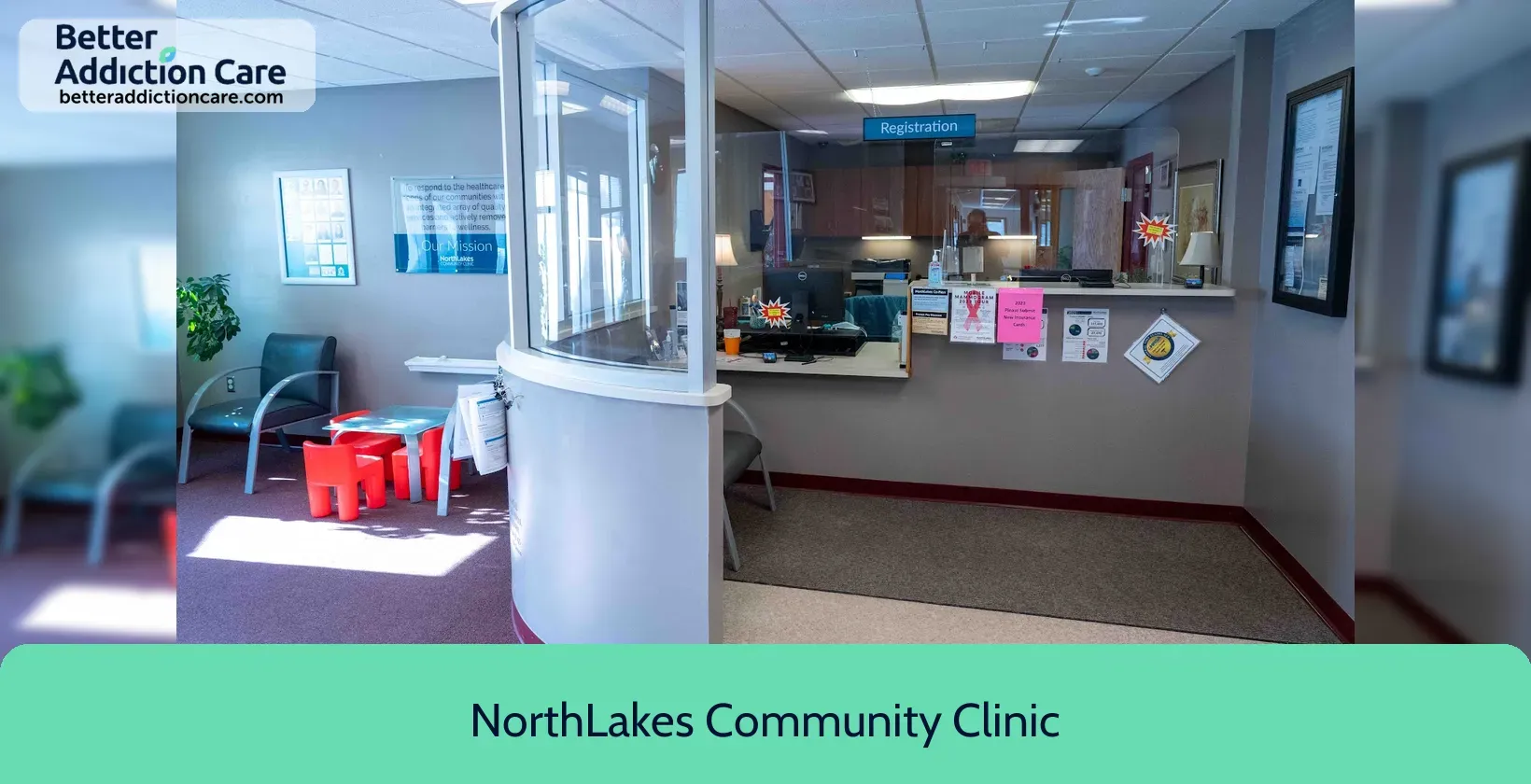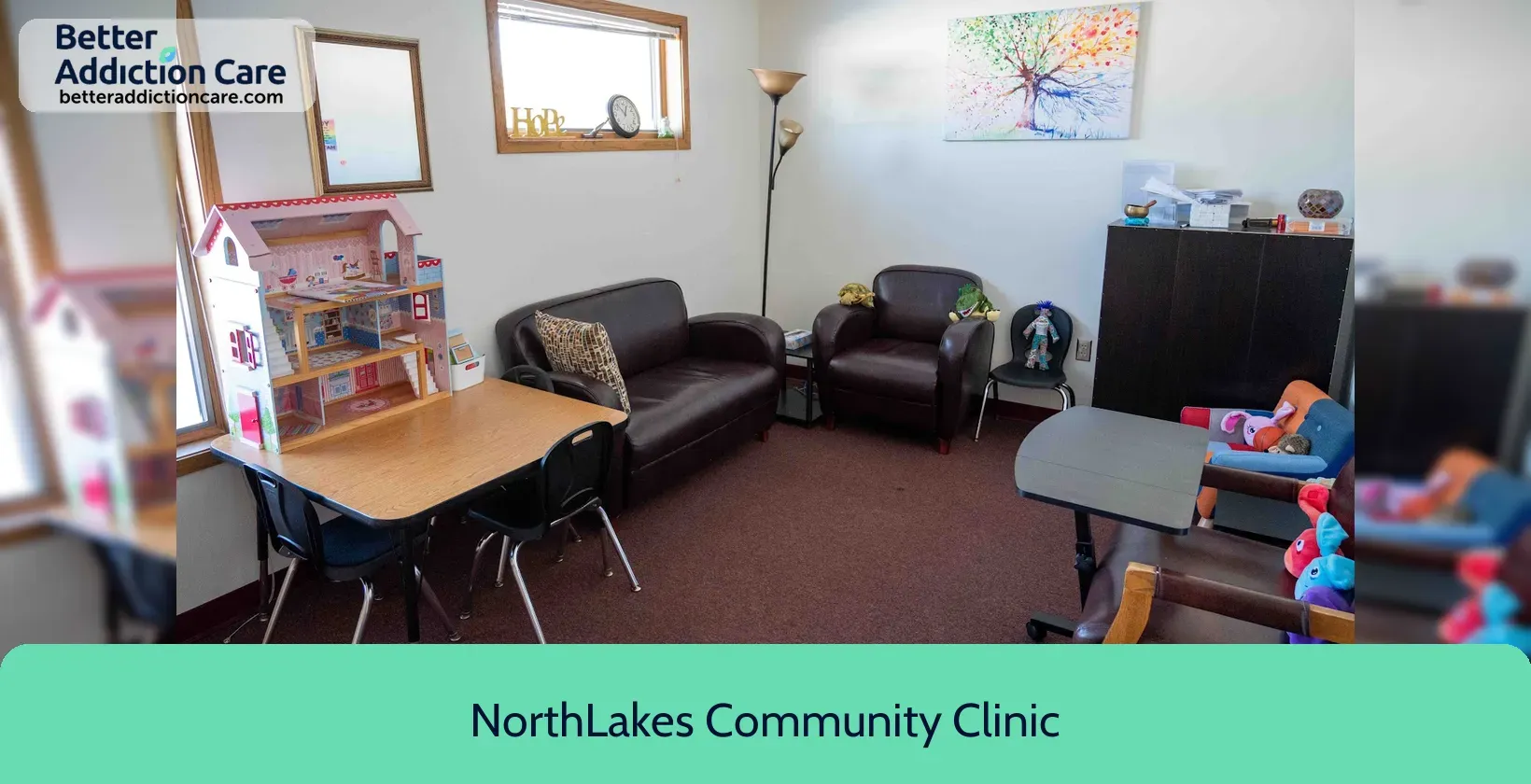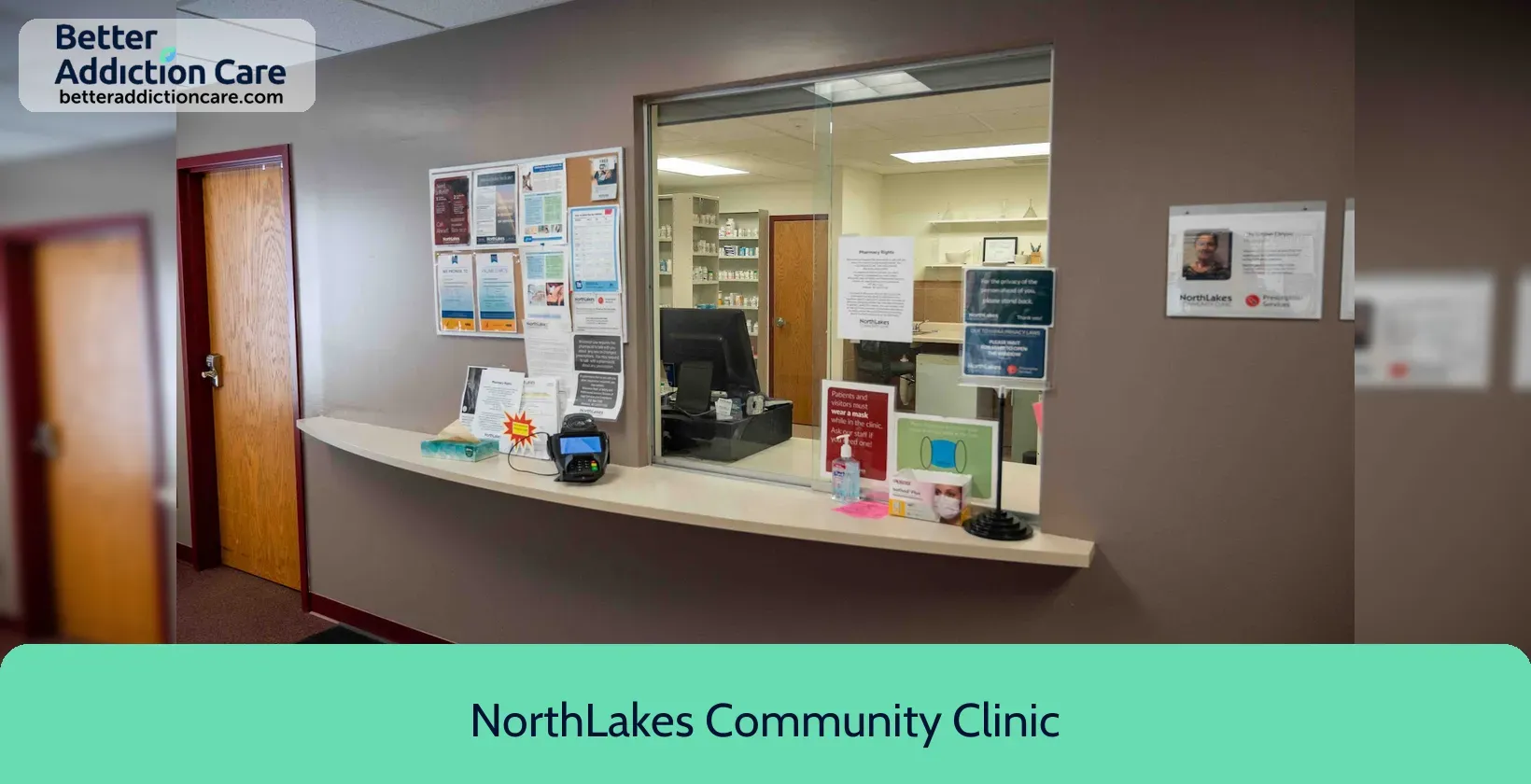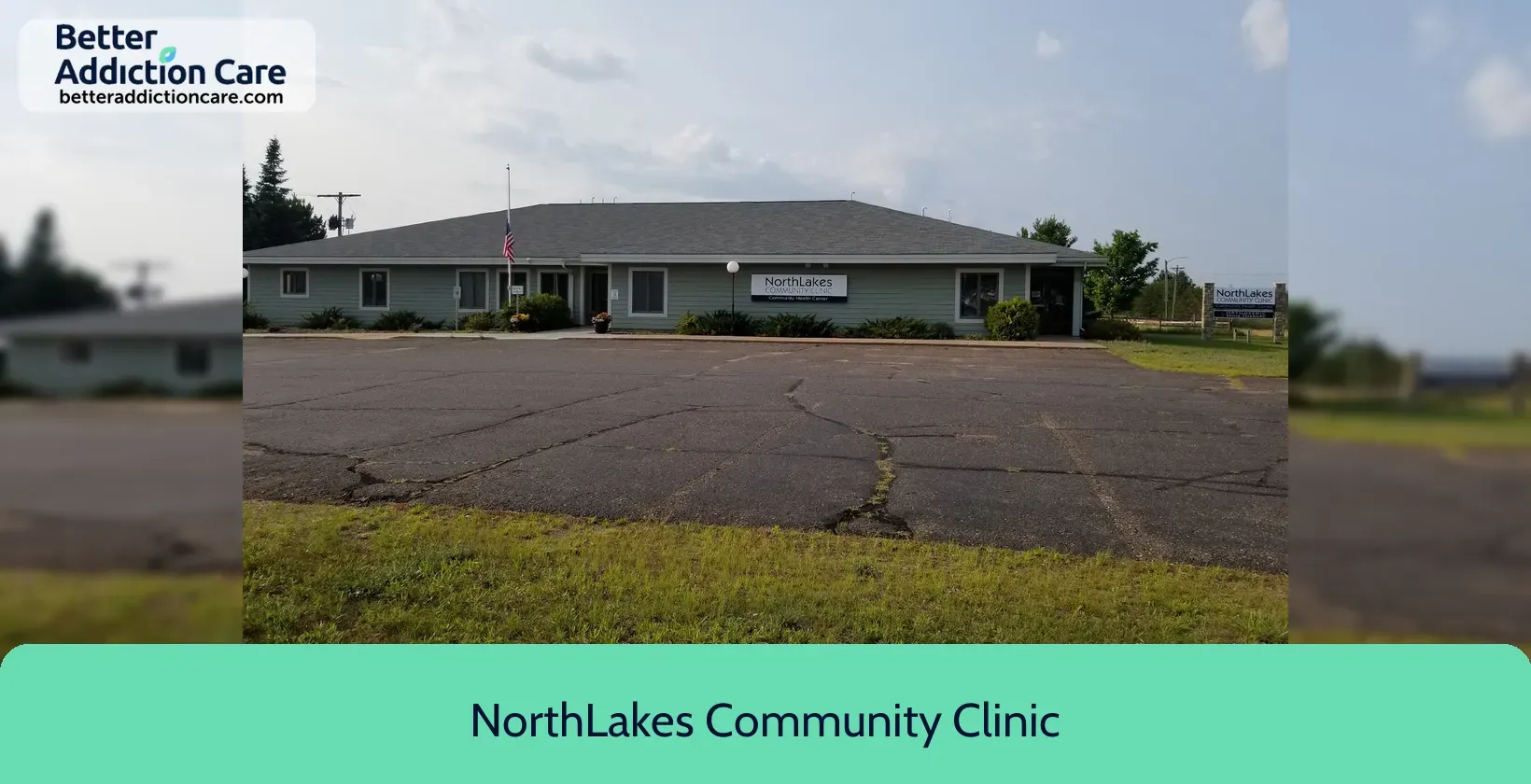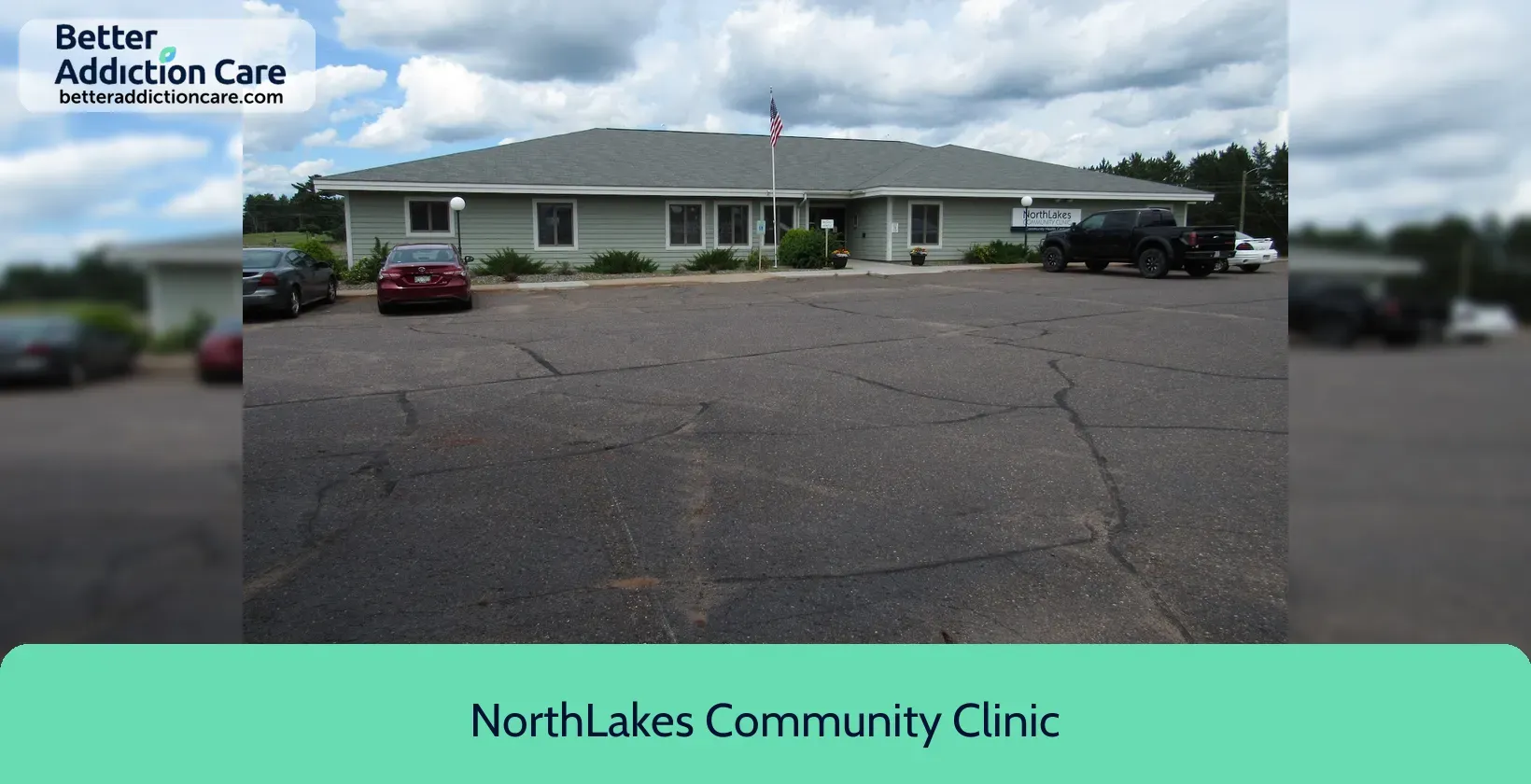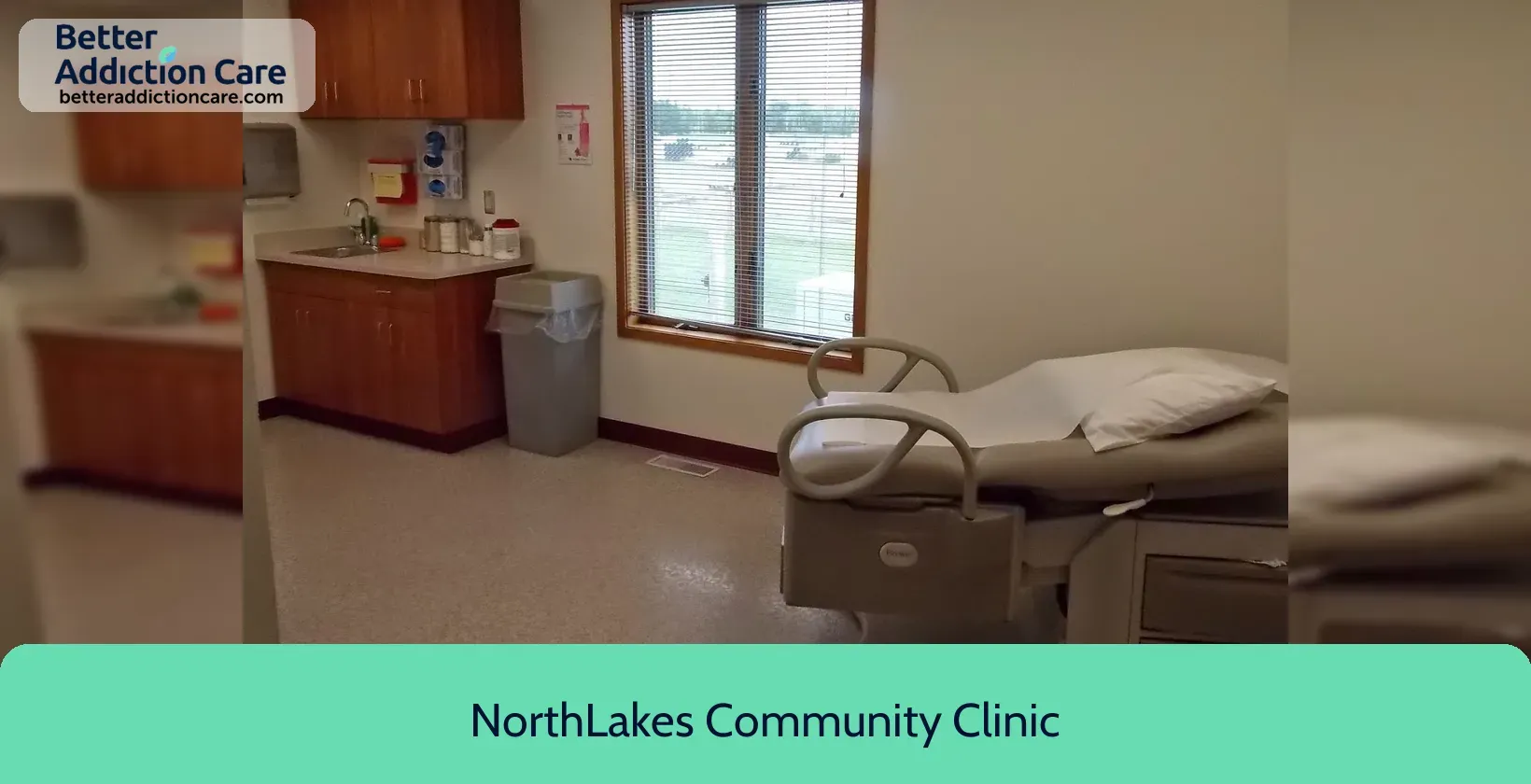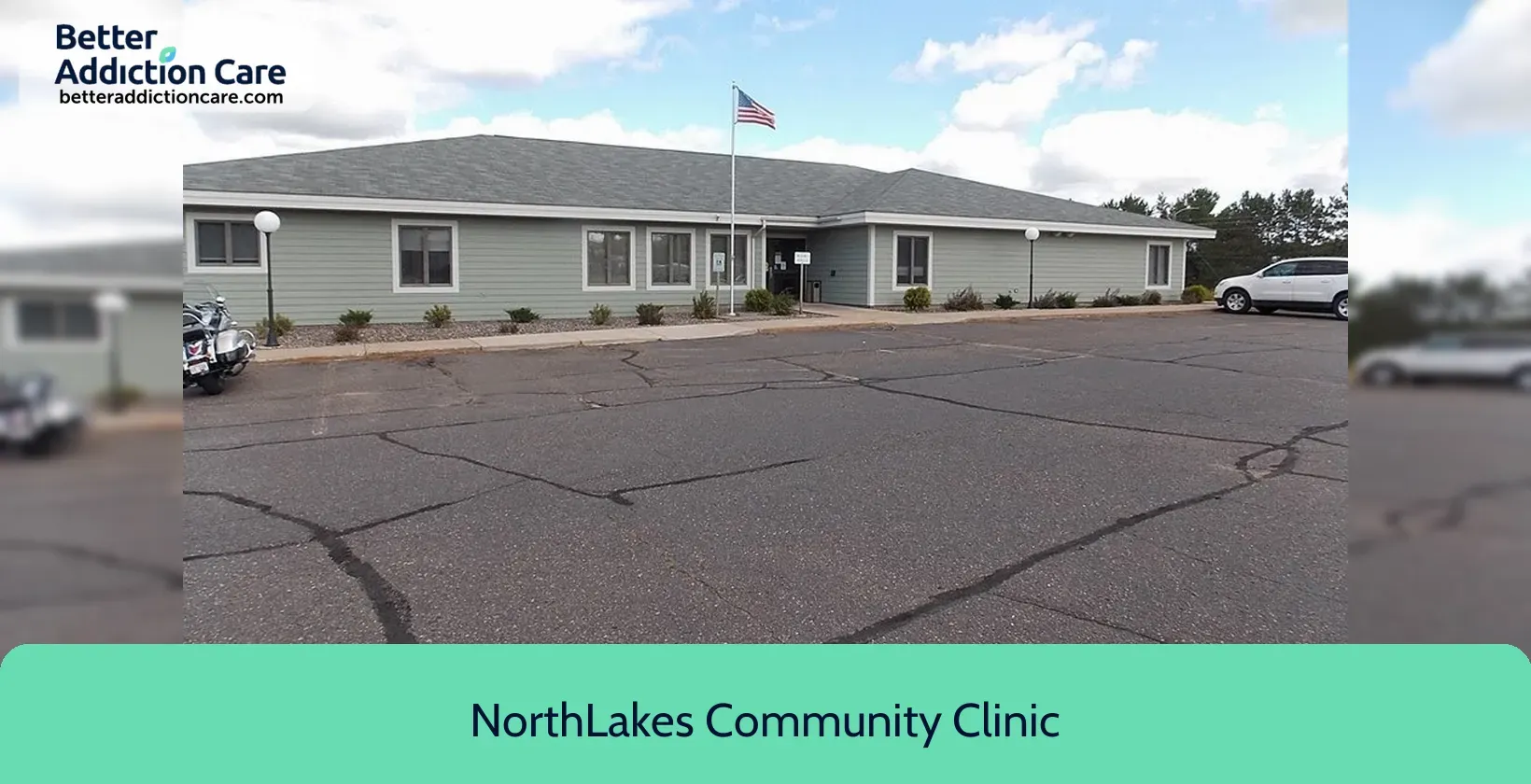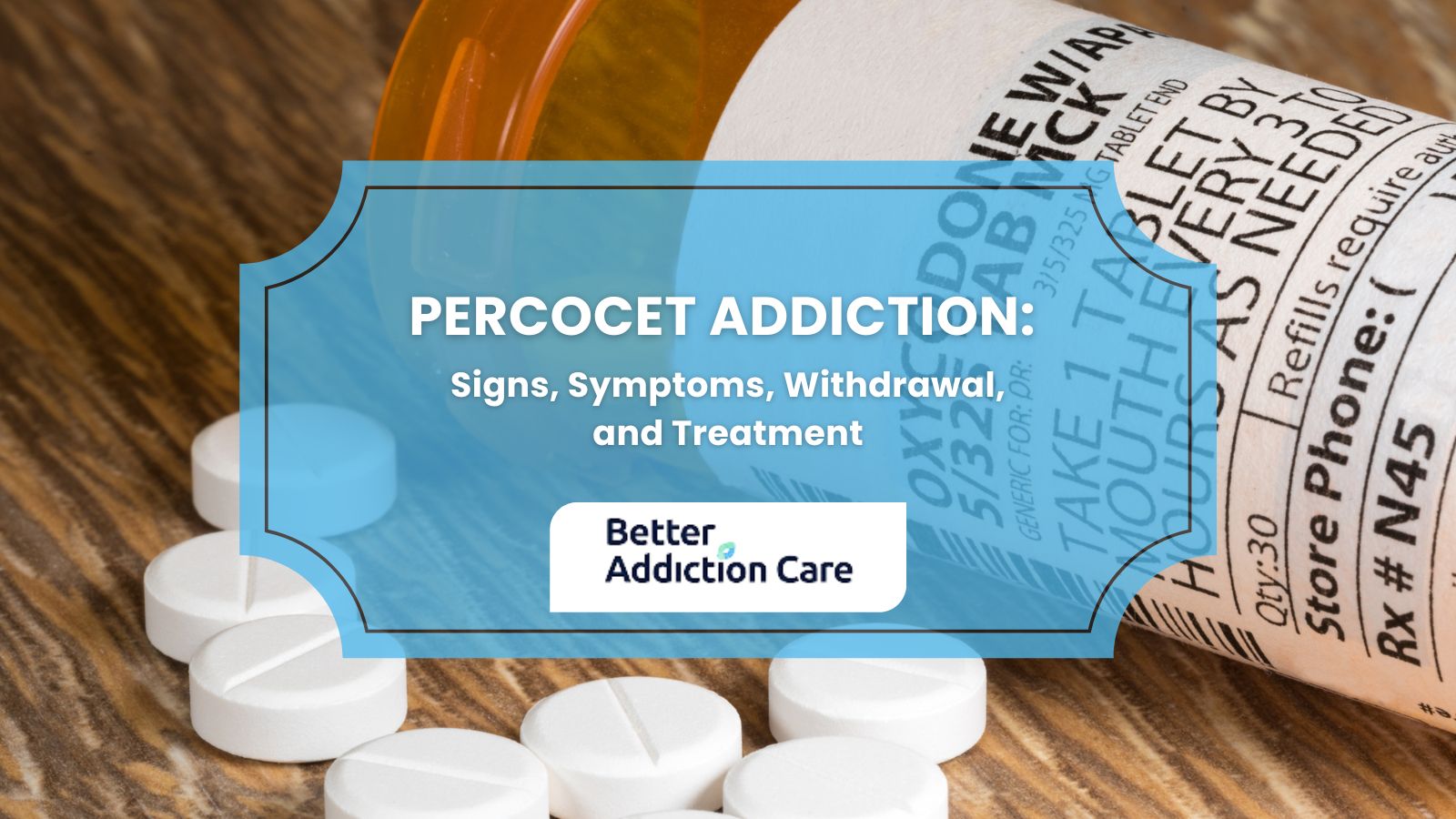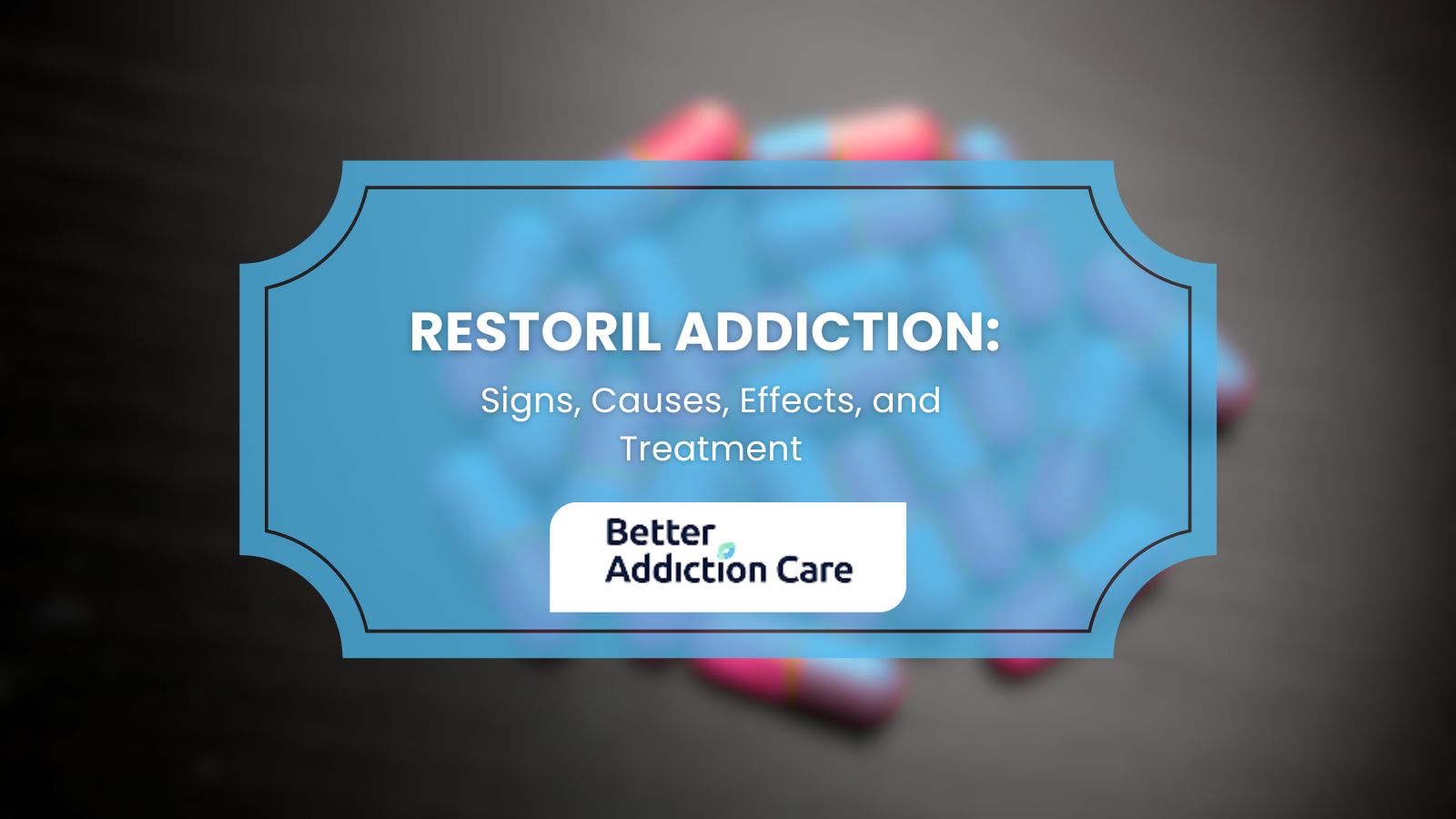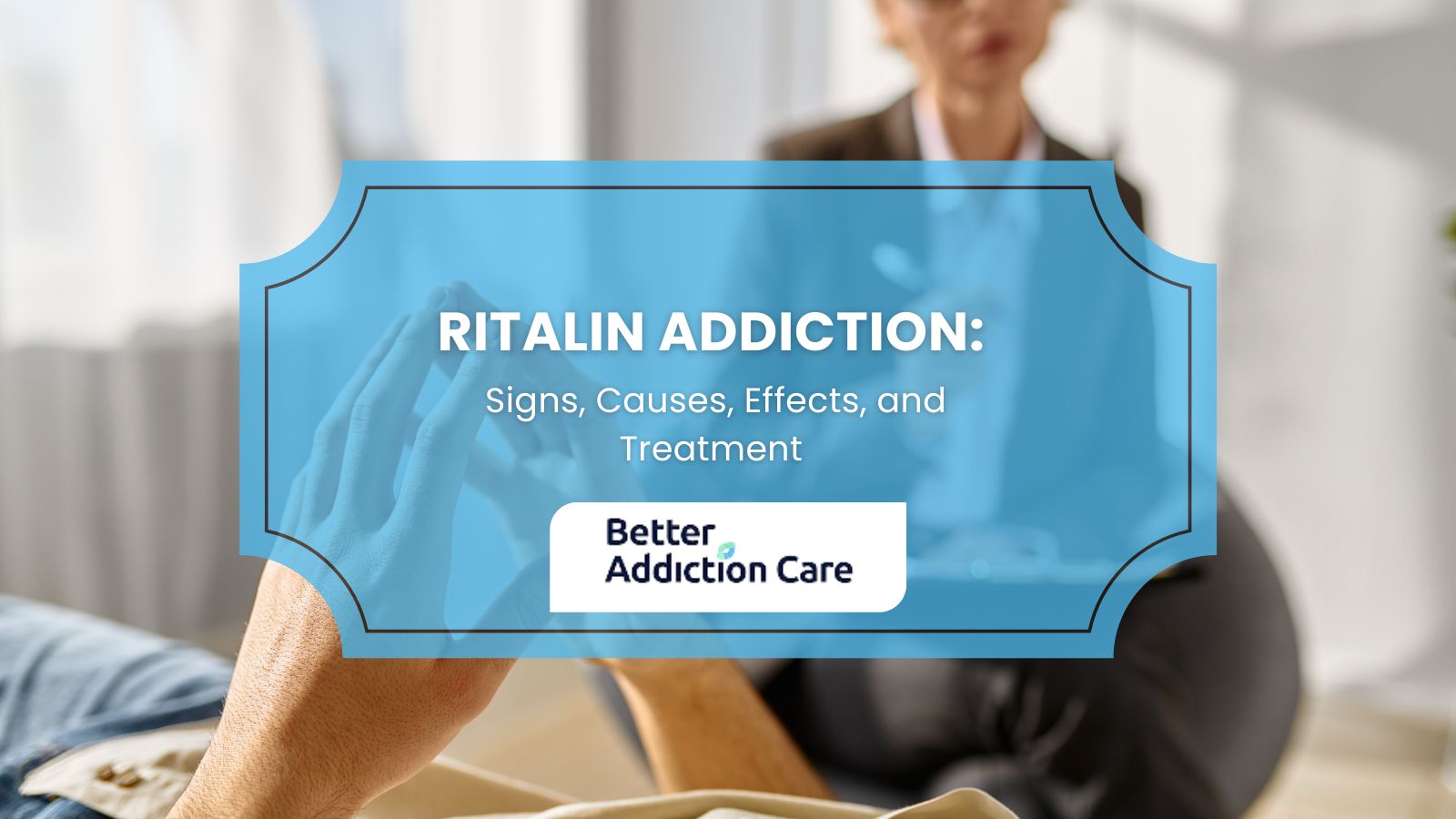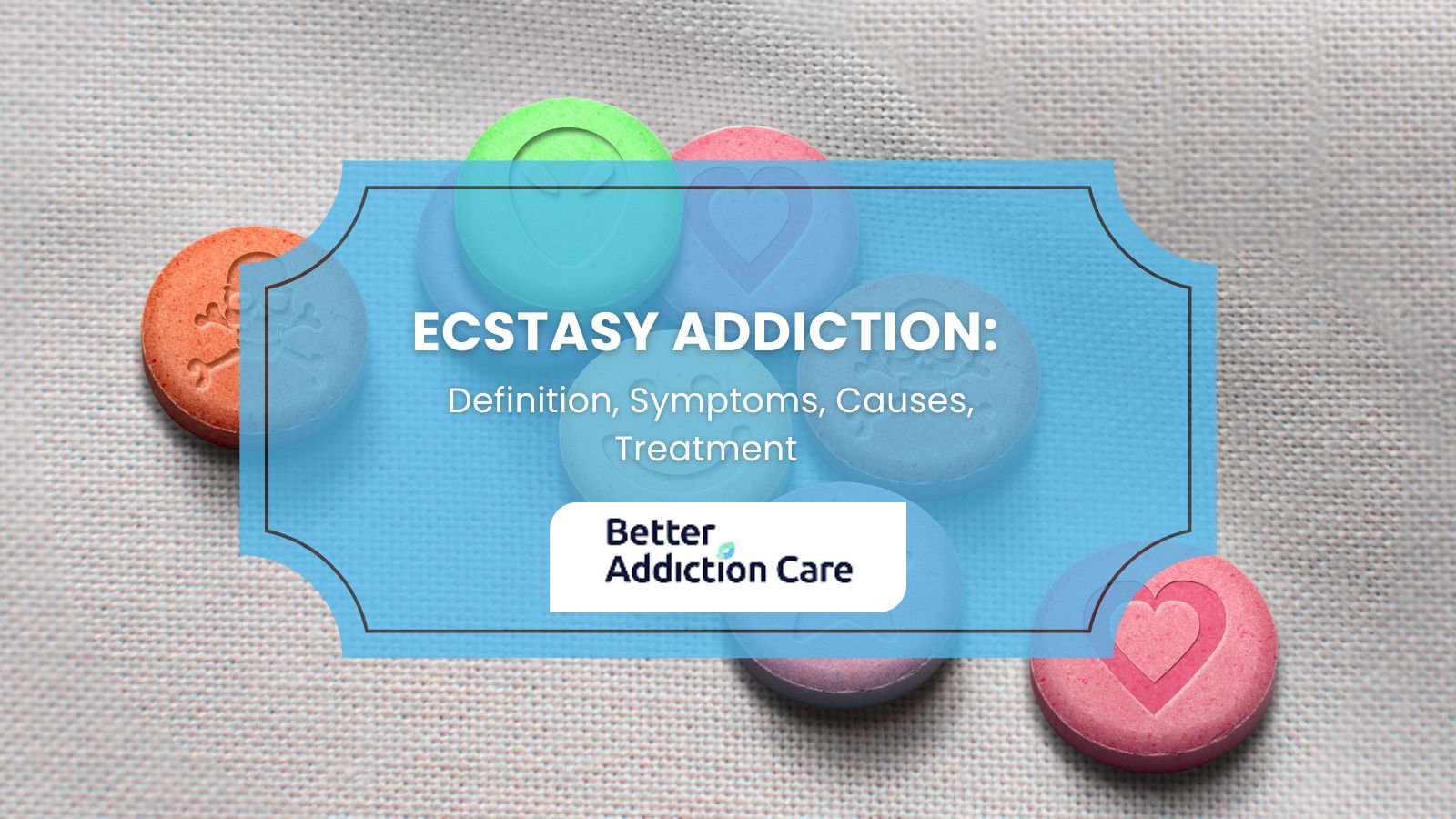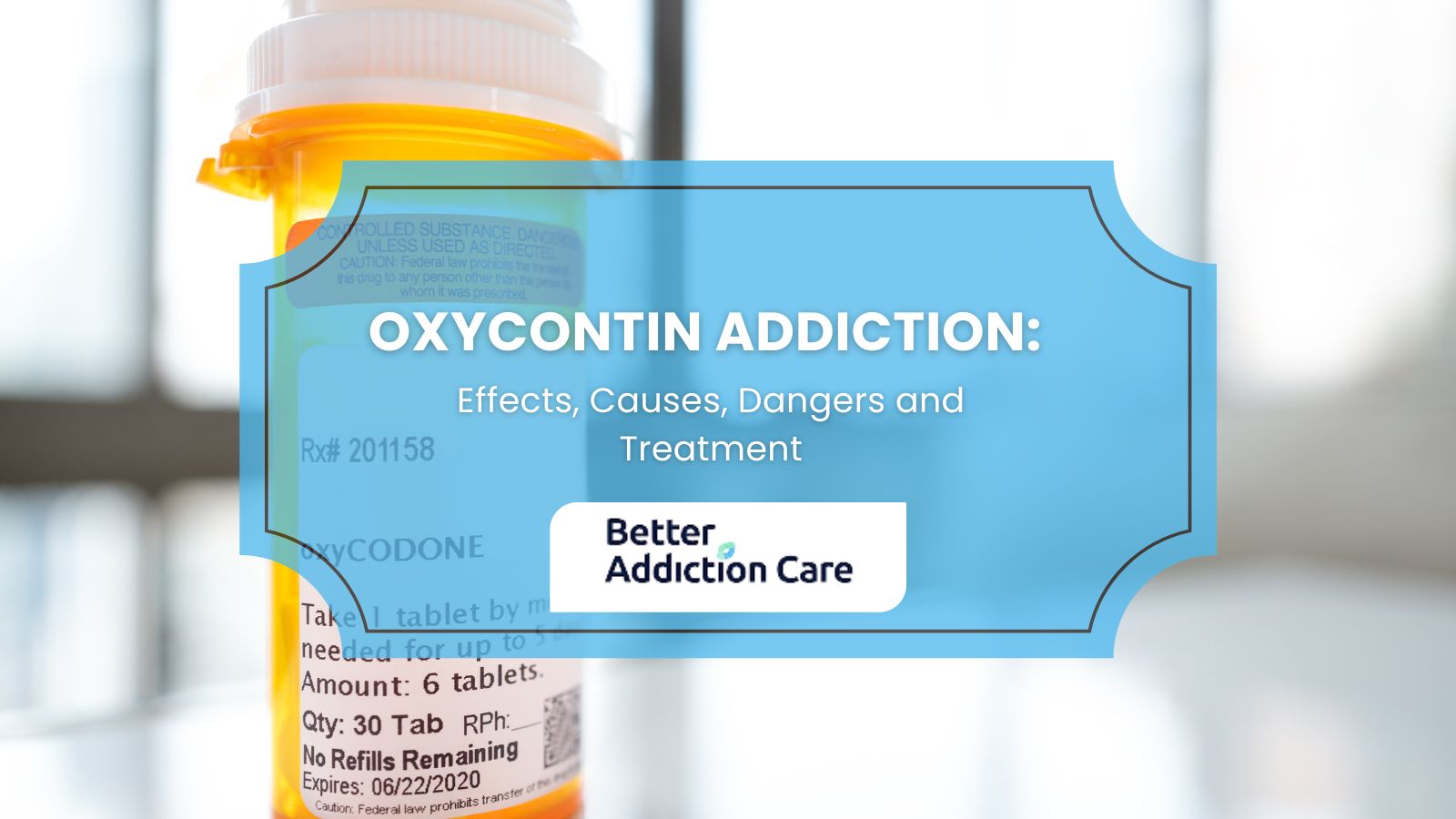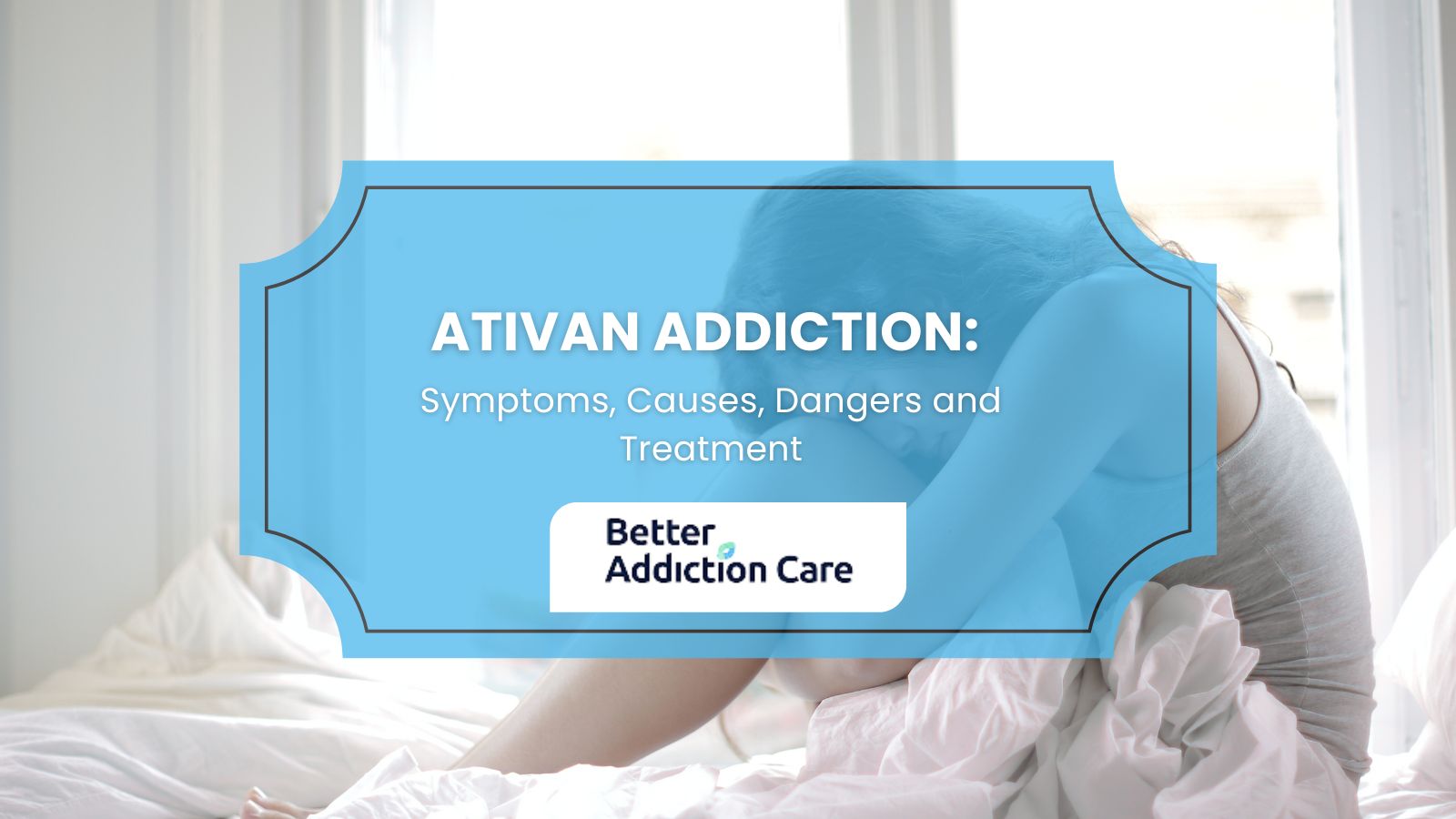NorthLakes Community Clinic
Overview
NorthLakes Community Clinic is a mental health treatment center for people seeking treatment near Washburn County. As part of their treatment modalities for recovery, NorthLakes Community Clinic provides couples/family therapy, cognitive behavioral therapy, and dialectical behavior therapy during treatment. NorthLakes Community Clinic is located in Minong, Wisconsin, accepting cash or self-payment for treatment.
NorthLakes Community Clinic at a Glance
Payment Options
- Cash or self-payment
- Medicaid
- Medicare
- State-financed health insurance plan other than Medicaid
- Private health insurance
Assessments
- Screening for tobacco use
- Comprehensive mental health assessment
- Comprehensive substance use assessment
Age Groups
- Children/adolescents
- Young adults
- Adults
- Seniors
Ancillary Services
- Chronic disease/illness management
- Court-ordered outpatient treatment
- Diet and exercise counseling
- Education services
- Family psychoeducation
Highlights About NorthLakes Community Clinic
6.71/10
With an overall rating of 6.71/10, this facility has following balanced range of services. Alcohol Rehabilitation: 8.00/10, Drug Rehab and Detox: 6.00/10, Insurance and Payments: 6.00/10, Treatment Options: 6.85/10.-
Alcohol Rehabilitation 8.00
-
Treatment Options 6.85
-
Drug Rehab and Detox 6.00
-
Insurance and Payments 6.00
Accreditations
Federally Qualified Health Center:
Federally Qualified Health Center (FQHC) accreditation is a process of evaluation and recognition by the federal government for community health centers that provide comprehensive and accessible healthcare services to underserved populations. FQHC accreditation is essential for centers to receive federal funding and to ensure that they meet standards for quality, patient-centered care.
Treatment At NorthLakes Community Clinic
Treatment Conditions
- Mental health treatment
- Substance use treatment
- Co-occurring Disorders
Care Levels
- Outpatient
Treatment Modalities
- Couples/family therapy
- Cognitive behavioral therapy
- Dialectical behavior therapy
- Integrated Mental and Substance Use Disorder treatment
- Telemedicine/telehealth therapy
Ancillary Services
Languages
- Sign language services for the deaf and hard of hearing
Additional Services
- Pharmacotherapies administered during treatment
- Housing services
- HIV testing
Contact Information
Read our Most Recent Article About Drug Addiction
DISCLAIMER: The facility name, logo and brand are the property and registered trademarks of NorthLakes Community Clinic, and are being used for identification and informational purposes only. Use of these names, logos and brands shall not imply endorsement. BetterAddictionCare.com is not affiliated with or sponsored by NorthLakes Community Clinic.
